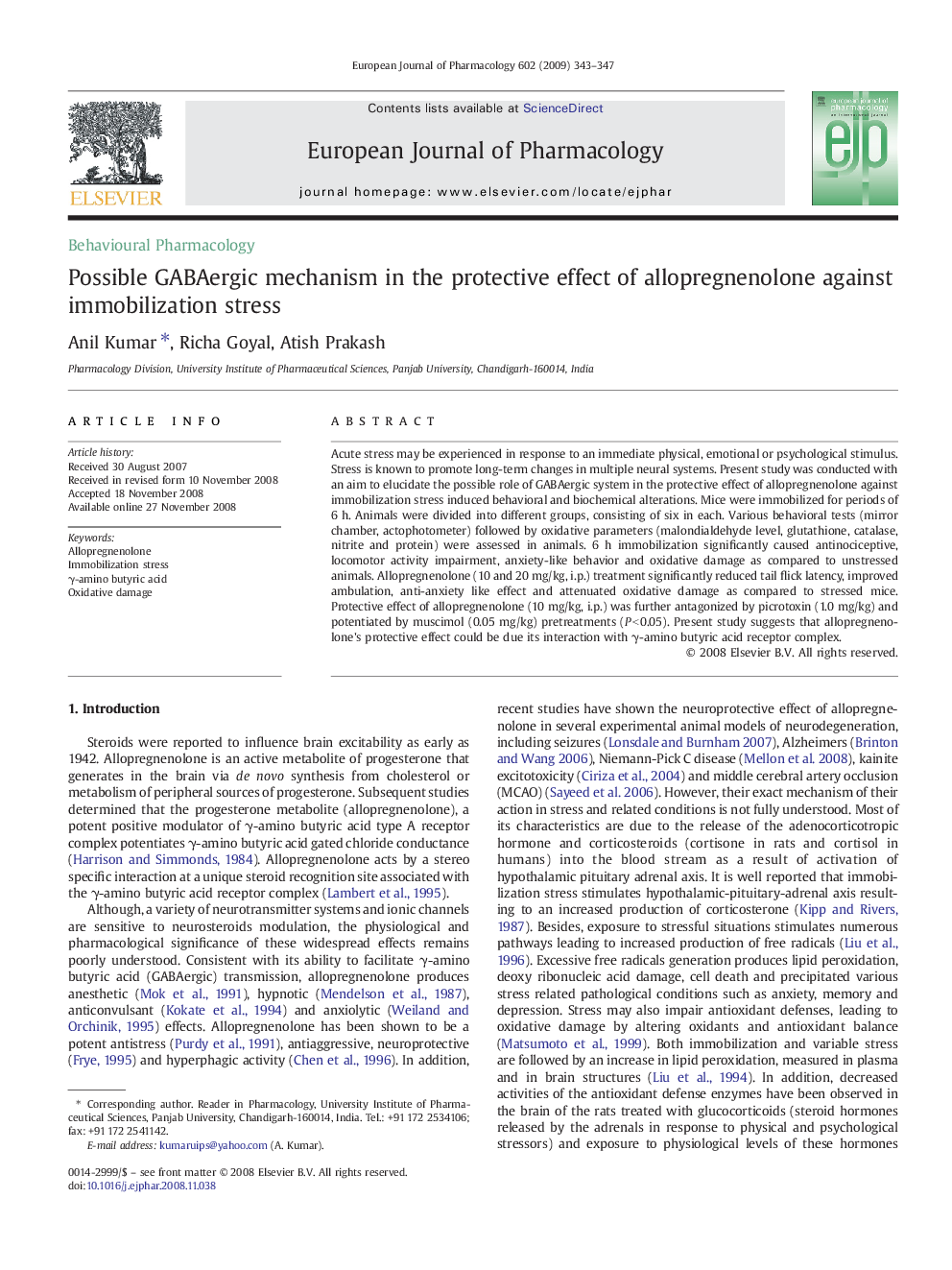| Article ID | Journal | Published Year | Pages | File Type |
|---|---|---|---|---|
| 2534520 | European Journal of Pharmacology | 2009 | 5 Pages |
Acute stress may be experienced in response to an immediate physical, emotional or psychological stimulus. Stress is known to promote long-term changes in multiple neural systems. Present study was conducted with an aim to elucidate the possible role of GABAergic system in the protective effect of allopregnenolone against immobilization stress induced behavioral and biochemical alterations. Mice were immobilized for periods of 6 h. Animals were divided into different groups, consisting of six in each. Various behavioral tests (mirror chamber, actophotometer) followed by oxidative parameters (malondialdehyde level, glutathione, catalase, nitrite and protein) were assessed in animals. 6 h immobilization significantly caused antinociceptive, locomotor activity impairment, anxiety-like behavior and oxidative damage as compared to unstressed animals. Allopregnenolone (10 and 20 mg/kg, i.p.) treatment significantly reduced tail flick latency, improved ambulation, anti-anxiety like effect and attenuated oxidative damage as compared to stressed mice. Protective effect of allopregnenolone (10 mg/kg, i.p.) was further antagonized by picrotoxin (1.0 mg/kg) and potentiated by muscimol (0.05 mg/kg) pretreatments (P < 0.05). Present study suggests that allopregnenolone's protective effect could be due its interaction with γ-amino butyric acid receptor complex.
